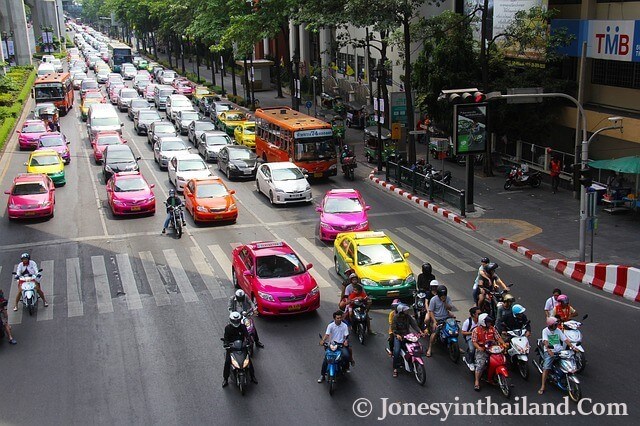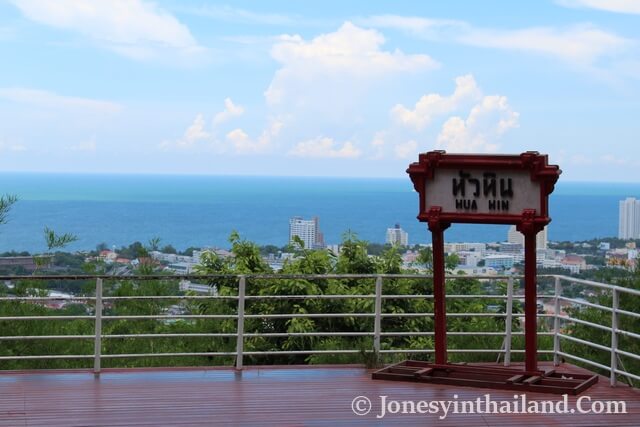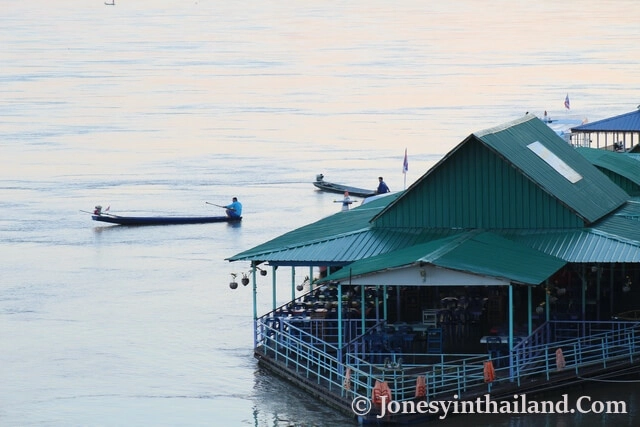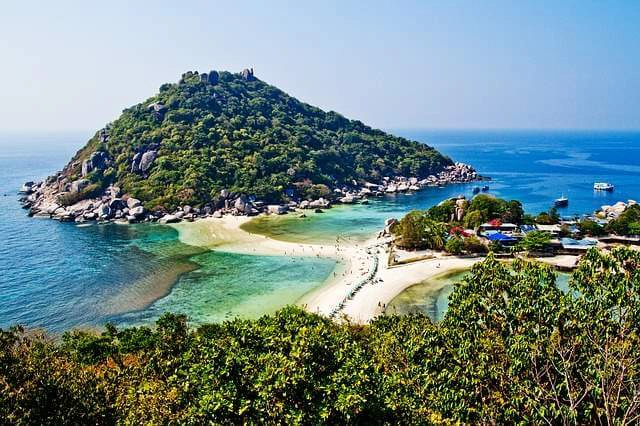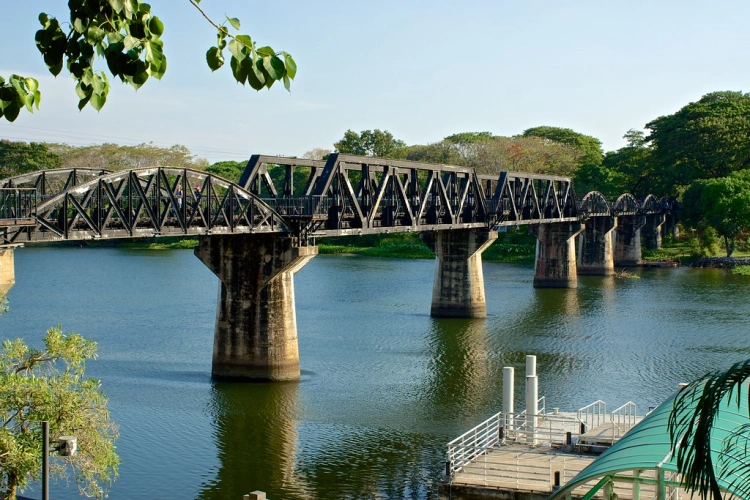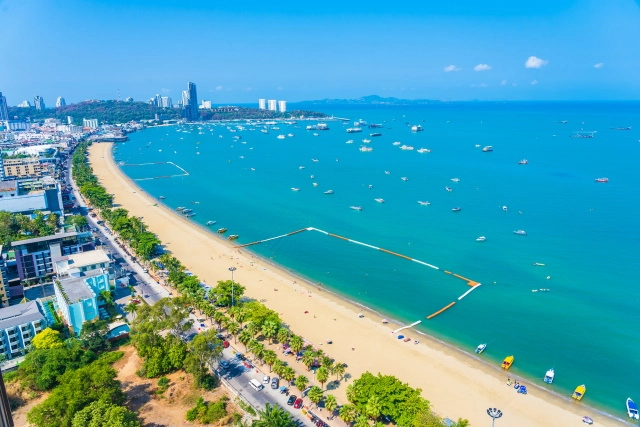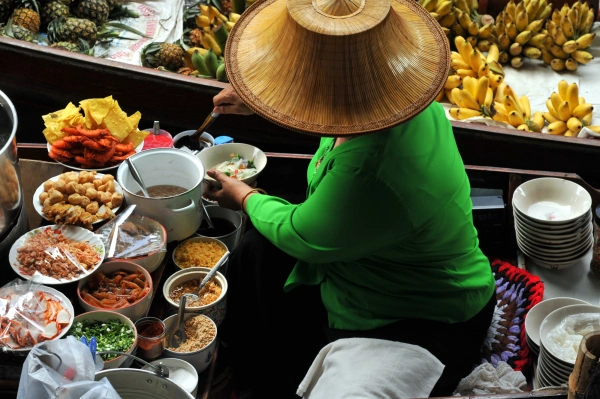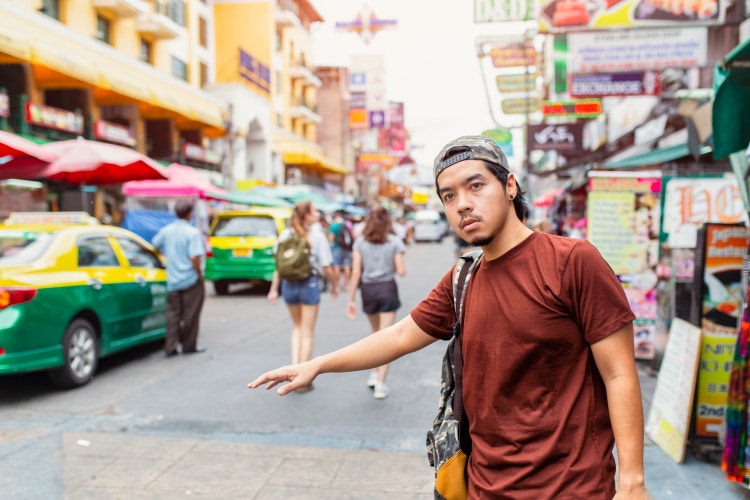Thailand Festivals –a Guide to Understanding and Celebrating Them
-- Last Updated on April 10, 2023 by Jonesy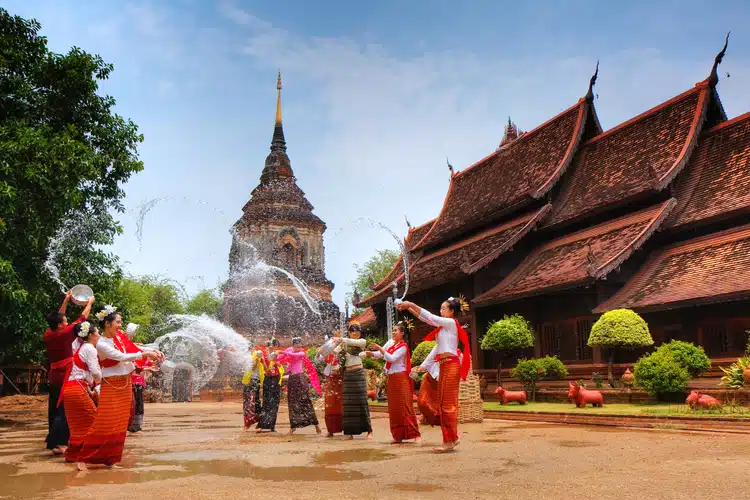
Thailand has plenty of festivals throughout the year to enjoy. It’s likely that many previous visitors will already have been caught up in at least one of these annual displays of culture and ceremony at some point and witnessed the exotic and bright displays.
In many ways it pays to be aware of significant Thai festival dates as well as other national holidays if you are planning a visit. It may help limit any potential inconveniences like heavy traffic issues or lack of alcohol sales–which is the case on Buddhist days. It’s also useful to know of any pertinent cultural significance attached to them which can add to the Thailand experience by providing a few missing pieces to the puzzle before you.
While the majority of Thai festivals hardly span more than a few days, there are exceptions. You’ll also find that in many cases the dates are rigidly adhered to every year, while specific days and dates of some festivals are influenced by factors considered prominent like the waxing and waning of the moon–especially with Chinese-influenced festivals.
So we’ve cracked on with a few tips for each particular Thai festival along with the month and day it occurs (if fixed). Thailand also has many local festivals worth checking out, but aside from including a couple of regional affairs, here we offer more of a general guide to Thailand’s festivals.
1. Chinese New Year (February)
Typically occurring sometime in February, the Chinese New Year Celebrations tend to stretch into several-day-long affairs. This is one of the festivals with exact dates usually determined by astrological factors or other similar divinations.
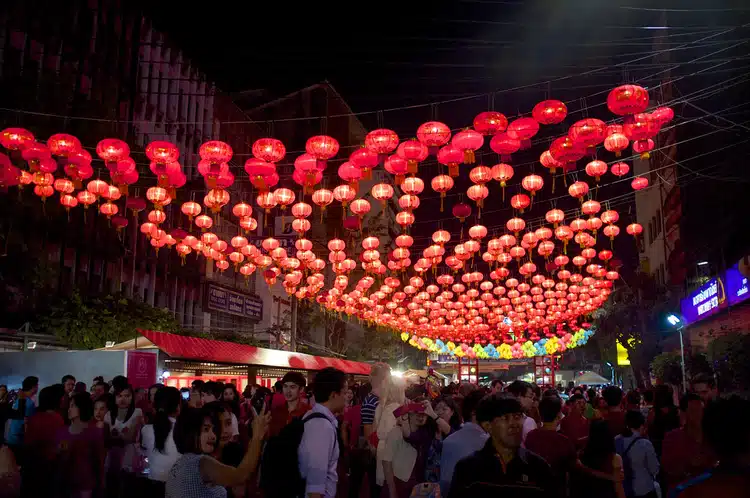
What to Expect
Chinese New Year is a colourful, exotic and pretty much ubiquitous affair. Certainly, this is one of the most significant festivals in Thailand, exemplified by the tirades of red that can be seen on display leading up to and throughout the festival’s duration.
The Best Places to Celebrate
Chinatown in Bangkok is home to one of the largest expat Chinese populations on the planet. And as the city has a large percentage of Thai-Chinese among its numbers, this is the area of Bangkok to best experience the vibe of the celebrations in full effect.
Traditional and Cultural Aspects
The colour red plays a key role in the belief systems of the Chinese, who consider it symbolic of good fortune and merit and thus permeate the festival with it.
2. Songkran Festival (April 13-15)
Songkran is undoubtedly one of the most popular holiday times in Thailand. It signifies the Thai New Year festival and takes place annually in April.
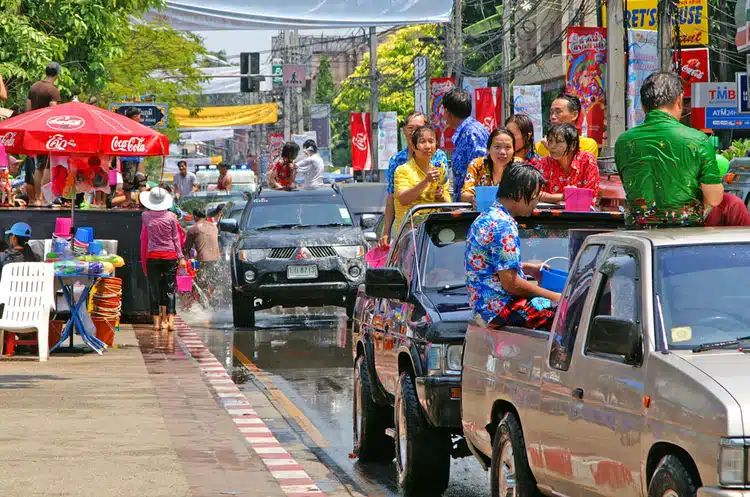
The 13th April is actually classified as Thai New Year’s Day, and the Songkran festival is celebrated across the nation for at least the two days following this date. The peak of the summertime in Thailand is basically a 3-day holiday and festival combined and if a weekend features anytime around the holiday dates it can easily become a 5-day affair (or for some 10!).
The Songkran Festival is the one that typically features legions of people throwing water at each other, originally intended to be from a small ceremonial cup although these days it can go as far as full-on water cannon-style battles. This is something that has gradually gotten more extreme in recent decades and features teens who are often drunk which admittedly means it is not for everyone.
April is the hottest month of the year in Thailand and as good a reason as any for the water-tinged festival being so well-loved. Worth a try if you fancy a bit of fun but come prepared!!
What to Expect
Water, frivolity, loud music, heat, and a touch of ceremony here and there depending on where you experience the celebrations.
The Best Places to Celebrate
This depends on your preferred angle. Younger generations might head for traditionally fun and busy city-centre areas like Khao San road and Silom where wet T-shirts abound, while the more conservative tend to keep it in and around the home or temple areas.
Most of the tourist destinations and Islands will celebrate Songkran, and any areas with bars will have lots of water throwing and boozing thrown in the mix, making them huge street party events. Phuket, Pattaya, Chiang Mai, and other places offer foreigners a full-on water and party experience.
Traditional and Cultural Aspects
Traditionally the festival and its water and Buddhist connotations were more about washing away the past and starting anew in line with the New Year theme. Many Thai traditionalists believe the festival has been hijacked by the young who believe it is more about water cannons for heat and fun in the sun!
3. Loy Krathong Festival (22nd November)
Loy Krathong is the second most well-known Thai Festival after the Songkran Festival. ‘Loy’ translates as to float while ‘ Krathong’ refers to a small float or raft made largely of banana leaves.
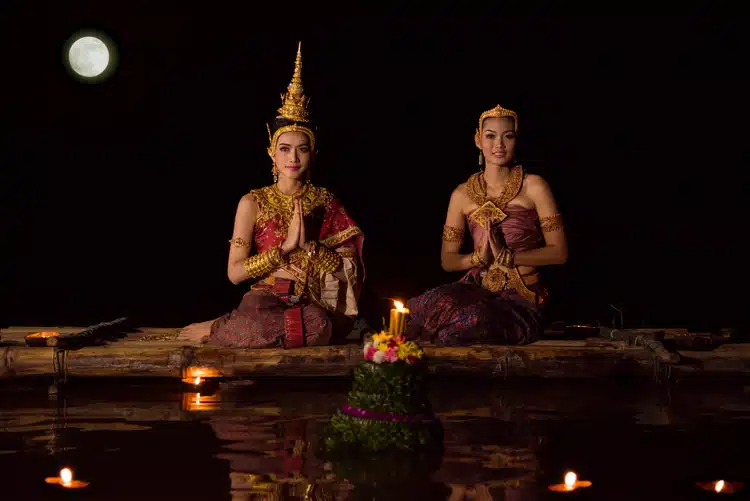
This is another activity related to water and also renewal, whereby any previous misdemeanours are repented and floated away while prayers and gratitude are offered to the Spirit of the Water. The krathong is floated on the water, usually with candles if the night has already closed in. This can be any body of water, small or vast, but as you can imagine it is a sight to behold in some areas once hundreds of krathongs have been set on their way.
What to Expect
Lots of people, lots of traffic in the evening time, bodies of water, candles, and some enchanting sights.
The Best Places to Celebrate
If you are staying in Bangkok the parks with man-made lakes such as Chutuchak and Lumpini are all popular but sometimes local ponds or any body of water is generally acceptable symbolically. Places like Asiatique on the Chao Phraya river are also popular –but very busy and crowded.
Many beach destinations in Thailand will allow people to float Krathongs in the sea, which is a beautiful scene. They clean up afterwards!
Traditional and Cultural Aspects.
Elements of the Loi Krathong festival are related to Theravada Buddhist lore, although Thailand operates its own version of Buddhism which is steeped in myth and supernatural legend.
4. The Vegetarian Festival (October)
The vegetarian festival occurs annually in Thailand between around the 16th and 25th October, and is another festival of Chinese origin. The roots of the festival are more related to peity and forgiveness of previous transgressions than the modern-day idea of healthy eating sometimes associated with going meat-free.
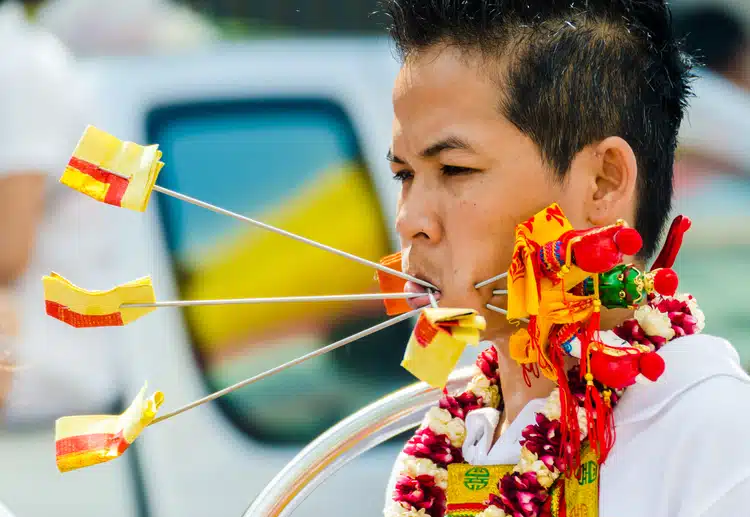
As it turns out some of the street parades in Phuket verge on the gory, as tattooed young men pierce their own flesh with all manner of sharp implements, in an almost shamanic, tribal way thought to represent some kind of penance to the gods. You won’t find this type of display in Bangkok though, only the yellow flag with the small red Chinese symbol on it which signifies ‘jae’ or vegetarian and vegan cuisine is being offered.
What to Expect
Aside from the gory show in Phuket, there’ll largely be lots of ‘fake meat’ Thai food options appearing everywhere. Unfortunately, most practising vegans who know their stuff will be disappointed to find much of the Thai ‘jae’ (vegan) options leave much to be desired health-wise.
The usual typical dishes are re-fashioned using tasteless soy and efforts are made at this time to avoid not only animal-derived products but also strong-tasting ones.
The Best Places to Celebrate
It is most prominent in Phuket where there is a large immigrant Chinese population. Ceremonially this tends to be the focal point at least, although in terms of the actual food on offer it’s common to see nationwide vendors indulging and they are identified by the little flag associated with the festival.
The ceremonies of the festival tend to occur in the vicinity of the six Chinese temples located throughout Phuket. The main temple is called Jui Tui Shrine, and can be found close to the fresh market in the town.
Traditional and Cultural Aspects
It is actually known as the ‘Nine Emperor Gods Festival’ to the Chinese population who place the main significance on penance and sacrifice–i.e. forgoing meat and acting out various penances.
There is also a belief that Chinese gods will protect you from harm in return for painful demonstrations of your beliefs. If you find yourself in Phuket the somewhat gory self-mutilations that comprise part of the street parade will be on show.
5. Yi Peng Lantern Festival (November)
Known otherwise as the Chiang Mai Sky Lantern Festival, this is a Northern Thai festival worth mentioning, and it is typically celebrated at the same time as Loy Krathong in November.
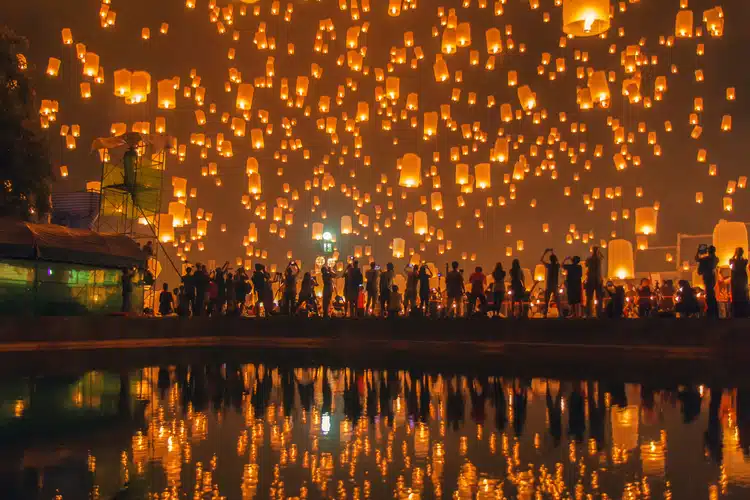
Numerous rice paper lanterns (khom loy) are sent skyward (even though some authorities have tried to ban them in recent years due to them being a fire hazard). They make for a compelling sight, although the government has started applying some restrictions as the lanterns can sometimes be dangerous.
This is another Thai festival rooted in Buddhism, with many holding the belief that by releasing the lantern, they are also releasing any potential misfortune that they may be holding on to. The releasing of the lanterns is the highlight of the festival for sure, but there are also parades, ceremonies, and fireworks as well as the releasing of paper floats in the river.
What to Expect
Lots of pretty night time scenarios as lit lanterns float up into the sky in what is also known as ‘The Festival of Lights’.
The Best Places to Celebrate
Typically the northern regions from whence the festival originates, and in Chiang Mai down by the banks of the Peng River where thousands of paper lanterns are released into the sky to float away on the evening breeze.
Traditional and Cultural Aspects
The festival has Brahmin roots which is intricately connected to the ancient northern Lanna style and was traditionally a celebration of the end of the monsoon season.
6. The Candle Festival (July)
This large festival in one of Isaan’s biggest cities is a nice mix of art, culture and celebration. Up to 10 huge wax sculptures are crafted by international teams of artists, mixing traditional art with more modern, abstract creations. The waxworks are paraded around on floats, accompanied by dancers and traditional folk music.
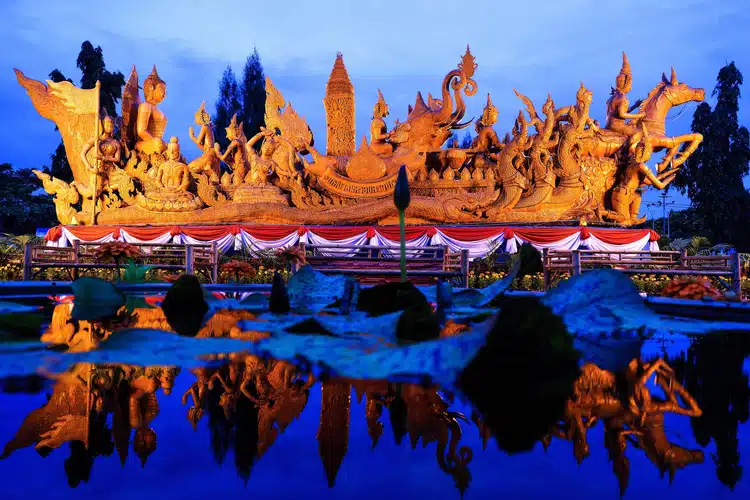
Principally, this is a religious festival held on a sacred Buddhist holiday by way of Macha Bucha day, when followers donate items to monks, but there’s still a party atmosphere throughout the city.
Remember that no alcohol is allowed to be sold in Thailand on Buddhist holidays, but it can be consumed. Most locals will stock up the day before and will be discreet about drinking out of respect for monks and devout Buddhists.
What to Expect
Lots of intricately-carved and often huge candles related to Buddhist and other aspects of Thai culture and lore.
The Best Places to Celebrate
The northeastern city of Ubon Ratchathani is where the festival originates, and the main events are centred around public park Thung Sri Mueang.
Traditional and Cultural Aspects
The festival is held to mark the start of the 3-month Buddhist Lent period.
Buddhist-Related Holidays
Makha Bucha Day is held in February or March and serves as one of Thailand’s main Buddhist holidays around which festivals and merit-making are likely to be built. Visakha Bucha Day is another notable day on the Buddhist calendar and it occurs in May or June, while Asahna Bucha Day (also known as Dharma Day) is another follow-on held in July.
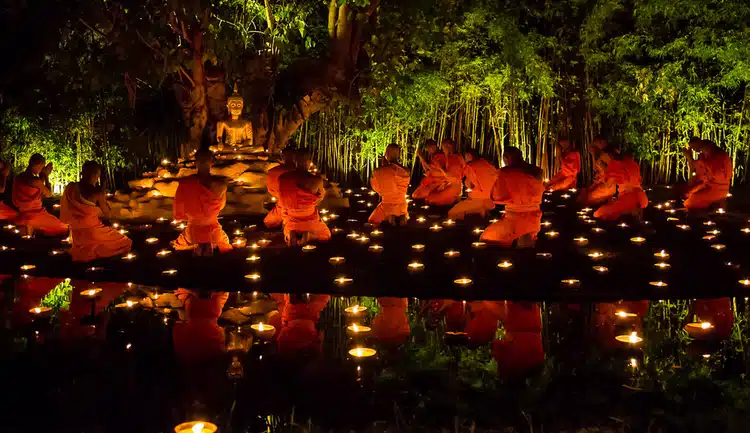
What to Expect
Plenty of drawn-out ceremonial stuff as is typical of formal Thai events. This may be particularly true of the Buddhist ones as Thailand adheres to the ‘old version’ of Buddhism by way of Theravada along with just a couple of other remaining Asian countries like Myanmar and Sri Lanka. Typically this entails lots of ceremony, chanting, alms and merit-making.
The Best Places to Celebrate
Temples! It is usually a case of the larger and grander the temple the bigger and better the displays of celebration and ceremony which are typically sombre affairs if that’s your thing.
Traditional and Cultural Aspects
- Makha Bucha Day commemorates the coming together of 1,250 enlightened disciples of Buddha to listen to his teachings. All of the monks present at this gathering were ordained by the Buddha himself, and today Buddhists go to make merit and join candlelight processions for the festival around this day known as “Wian Tian”.
- Asahna Bucha Day commemorates the Buddha’s first sermon to his first five disciples. Dharma is a Buddhist term that refers to the teachings of the Buddha. This is a Thai festival that apparently needs to occur on the first full moon of the eighth lunar month.
- Visakha Bucha Day represents the birth, enlightenment and passing into Nirvana of the Buddha. As with the majority of Buddhist holidays and festivals in Thailand, there is much Buddhist ceremony and ritual at the temples on this particular day.
If you are a drinker on holiday it pays to be aware of the fact that with all Buddhist-related events the sale of alcohol is prohibited.

Mark Philip is a writer and lifestyle enthusiast from the Midlands in the U.K. With a background in martial arts and fitness, Mark upped sticks and headed out to Bangkok to delve a bit deeper into the art of Thai Boxing way back in the 2000s, starting to write initially to fund his daily training and escape the rigours of ESL teaching. Since then Mark has authored e-books, articles, and blogs across a wide range of topics for commercial, educational, factual, health & fitness, lifestyle, wellness, and leisure-based purposes.
Related –you might also like
- Thailand Culture, and Traditions Guides
- Thailand Etiquette and Customs – Do’s and Dont’s
- Drinking Culture In Thailand – Do’s and Don’ts
- The Thai Wai— a Brief Guide on How, When and Why
- How Well is English Spoken in Thailand?
- Thailand Food Guides – The Land of Spice and Flavours
- Mosquitoes in Thailand—Everything You Need to Know

